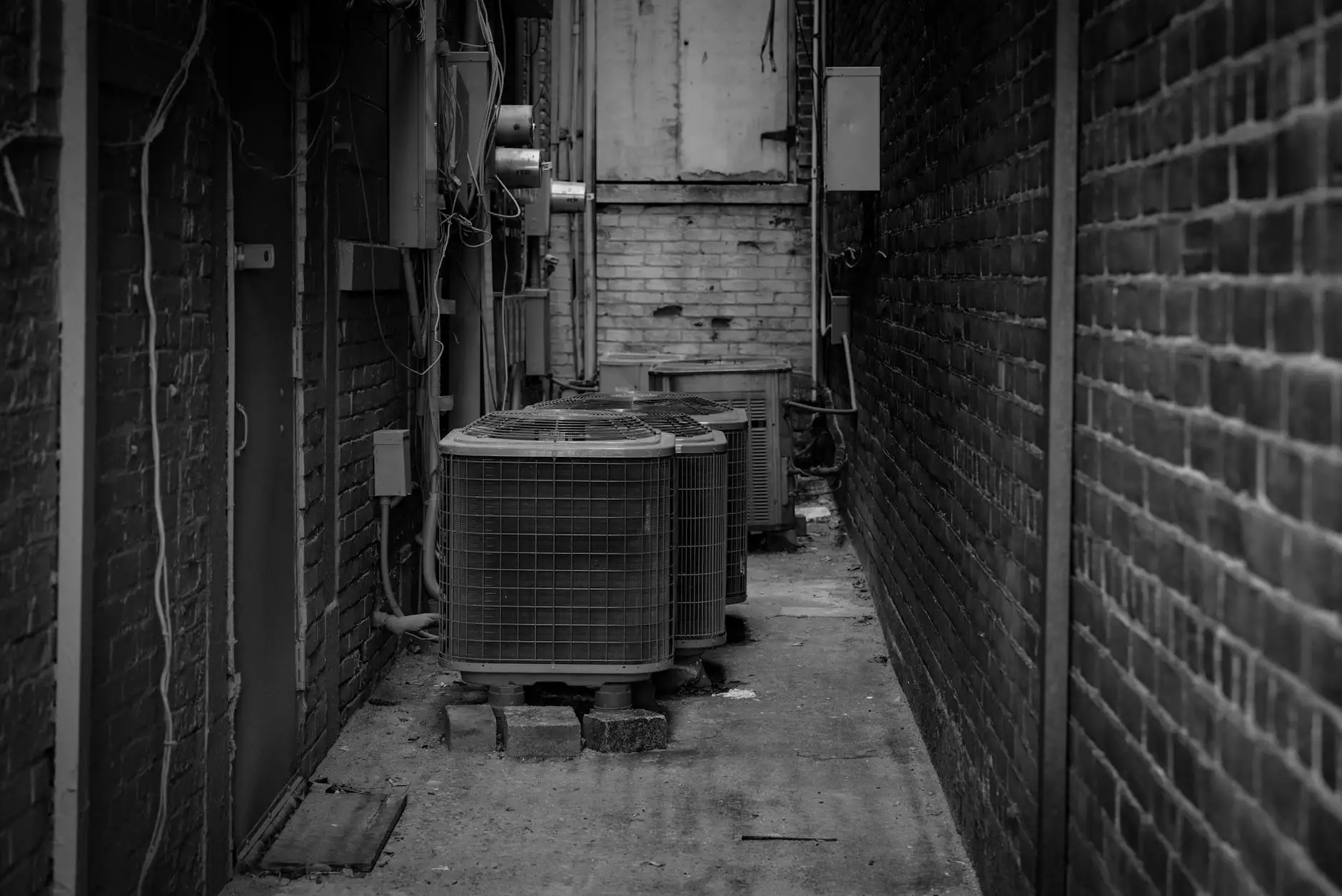Understanding HVAC Fan Coil Systems

The HVAC fan coil is a crucial component in modern heating, ventilation, and air conditioning systems, particularly within the automotive industry. By efficiently regulating temperature and enhancing passenger comfort, fan coil units have become essential in vehicle design and functionality. In this comprehensive article, we delve into the workings, advantages, and maintenance of HVAC fan coil systems, highlighting their significance in automotive engineering.
What is an HVAC Fan Coil?
A fan coil unit (FCU) is a type of heat exchanger that uses a fan to circulate air over a coil that can either heat or cool that air. Typically, these coils are connected to a central heating and cooling system, which provides the necessary water or refrigerant to maintain the desired temperature. In automotive systems, the fan coil can be integral to both climate control and engine cooling.
The Importance of HVAC Fan Coils in Automotive Applications
As vehicles become more sophisticated, the need for advanced climate control systems grows. The HVAC fan coil provides several benefits in automotive applications:
- Enhanced Comfort: The ability to maintain a consistent cabin temperature creates a more enjoyable driving experience for passengers.
- Efficiency: Fan coil units are typically compact and can operate efficiently with minimal energy consumption, which is critical in today's eco-conscious market.
- Versatility: They can be used in various configurations, including heating, cooling, and dehumidifying, adapting to different weather conditions.
- Improved Air Quality: Fan coils can incorporate air filters that help maintain cleaner air within the vehicle, reducing allergens and pollutants.
How HVAC Fan Coils Work
The operational mechanism of an HVAC fan coil unit is relatively straightforward:
- The coil is connected to the building’s HVAC system, which circulates water or refrigerant through the coil.
- A built-in fan draws ambient air from the surroundings and forces it over the coil.
- As air passes over the coil, it absorbs or releases heat, depending on the temperature setting and the fluid flowing through the coil.
- The conditioned air is then blown back into the cabin or space, creating a comfortable environment.
This seamless loop ensures that the desired temperature is maintained effectively and efficiently.
Types of HVAC Fan Coil Units
There are various types of fan coil units used in automotive settings, each designed to cater to specific needs and preferences:
- Ceiling-mounted Fan Coils: Ideal for maximizing cabin space while providing effective airflow.
- Wall-mounted Units: Used where ceiling arrangements are complicated, providing quick access and easy controls.
- Concealed Fan Coils: Integrated within the vehicle structure for a sleek and unobtrusive installation.
- Recessed Units: Designed to fit seamlessly into the architecture of the vehicle, often used in luxury cars.
Benefits of HVAC Fan Coils in Automobiles
Utilizing HVAC fan coils in vehicles presents several distinct advantages, contributing to both comfort and efficiency:
1. Energy Efficiency
Modern fan coil units are designed to be highly efficient, consuming less energy compared to traditional HVAC systems. This contributes to lower fuel consumption in vehicles, making them more environmentally friendly.
2. Compact Design
The compact nature of fan coils allows for easy integration into various vehicle types without taking up excessive space. This is especially valuable in smaller vehicles where space is at a premium.
3. Selective Control
Drivers and passengers can adjust the temperature in different zones of the vehicle, allowing for personalized comfort. This selective climate control enhances the overall driving experience.
4. Adaptable Installation
Fan coils can be installed in various configurations, making them adaptable to a wide range of vehicle models and designs.
Maintenance of HVAC Fan Coil Units
Maintenance is essential for ensuring the longevity and performance of your HVAC fan coil system. Regular upkeep can prevent costly repairs and enhance system efficiency. Here are some best practices:
- Regular Filter Replacement: Filters should be checked and replaced regularly to maintain air quality and system efficiency.
- System Cleaning: Periodic cleaning of the coils and fans is necessary to remove dust and debris that can impair functionality.
- Inspecting Components: Regular inspection of electrical connections and mechanical components helps identify potential issues before they become significant problems.
- Professional Servicing: Scheduling regular maintenance with qualified HVAC professionals can extend the lifespan of the fan coil system.
Conclusion
In the rapidly evolving automotive industry, HVAC fan coil systems play a pivotal role in ensuring driver and passenger comfort while maximizing energy efficiency. Whether employed in luxury vehicles or family cars, these systems provide a reliable solution for climate control. As manufacturers continue to innovate and improve HVAC technologies, the integration of sophisticated fan coil systems will undeniably enhance the driving experience. For automotive businesses aiming to stay competitive in the market, investing in advanced HVAC solutions like fan coils is essential.
For more insights into HVAC solutions tailored to the automotive industry, visit coldteknik.com.tr.








